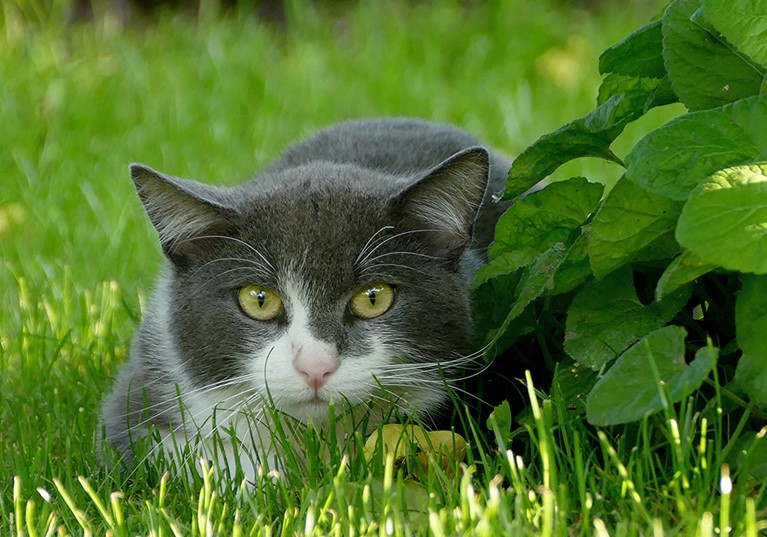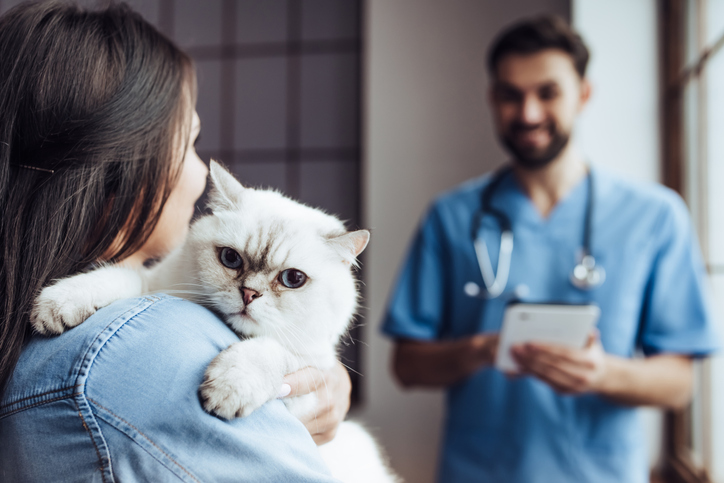What to do if you find a dead cat
27th January, 2020

Finding a dead animal is never a fun experience; it can be distressing and upsetting. And knowing that an animal is someone’s pet, those feelings can be even more intense.
Cats very quickly become an important part of any family. When they are suddenly no longer around, they will be sorely missed.
However distressing it is for the person who finds the dead cat, they need to think about the owner. When a beloved cat goes missing it’s hard not to feel anxious.
They will be scouring the neighbourhood trying to track them down. The very least you can do is let them know the situation and put their mind at rest.
If you do find yourself in this situation and are wondering what to do next, here’s a guide on what steps you should take – as well as some tips on what to do when your own cat passes away.
Make sure the cat is dead and not just injured
In most cases, it will be very obvious when a cat is dead. However, when you find a cat hidden away in an outdoor space it might not be so obvious.
In these cases, it can be difficult to know whether the animal is alive or not.
You will need to check for signs of life and ensure the cat receives urgent medical care if required. There are a few simple ways to check whether a cat is still alive. These include:
-
Checking for signs of breathing: Can you see the cat’s chest or stomach moving?
-
Checking if the cat’s eyes are open: Cats’ eyes tend to stay open after they have died, this is because muscle control is needed to keep them closed.
-
Checking the pupils: Pupils often appear larger than usual after a cat has died. You can check whether the cat is unconscious rather than dead by shining a light into its eyes. If the pupils change size, the cat may be unconscious, not dead.
In summary, if the cat’s chest and stomach are not moving, its eyes are open and its pupils do not react to changes in light, they have more than likely died.

What to do if you find a dead cat on your property
If you find a dead cat in your garden, as the homeowner it is your responsibility to take action. The best thing to do is to take the animal to a local vet so they can find out if they are microchipped.
This way owners are not left wondering what has happened to their pet and can get some peace of mind.
Moving any dead animal is never going to be a pleasant task, but it has to be done. You can place the cat in a box or wrap it up in an old blanket before taking it to the vet.
Let the vet know where you found it and they will be able to check for a microchip and contact the owners.
Veterinary surgeries are also happy to keep hold of the body even if no microchip is found so you don’t have to take it home with you again.
By storing the body, they are able to identify and return the animal should the owner get in touch. Make sure to teach your children about the safety procedures around there being a dead cat on your property or about owning a cat in general.
What to do if you hit a cat while driving
Hitting a cat when you are behind the wheel can be traumatic for you the driver, the passengers, and of course the cat’s owner.
Unfortunately, accidents happen and many are unavoidable. Here are some useful steps you can follow if you do accidentally run over a cat.
-
Come to a stop safely and check the animal. It may surprise you to hear that just 25% of cats involved in traffic accidents are killed. By stopping the car you can check for injury and ensure the cat gets the veterinary treatment it needs.
-
If the cat is injured but alive they will be scared and in pain. Stay calm and carefully lift the cat into your car (ideally in a blanket or box if you have one). Speak softly and avoid any loud noises or abrupt movements.
-
If the cat has died you should try to find the owner to let them know what has happened. Knock on a few doors in the surrounding area and share the news on social media. There are plenty of lost and found sites that could help you locate the cat’s owner.
-
If you are unable to get to a 24-hour vet, you could try contacting the RSPCA who can do roadside microchip scanning.
-
As a last resort, you can contact the council, however they don’t always carry out microchip checks and the body may simply end up in landfill.
And remember: there’s no money involved taking a dead or injured cat the vets, so don’t let that stop you.

How to prevent your cat being involved in an accident
Unless you have a cat that stays indoors all the time, there is always a risk they could be involved in a road accident.
However, there are a few things you can do to minimise that risk and keep them safer when they are roaming the streets.
These include getting them neutered, making sure they wear reflective collars, setting night time curfews and limiting the distances your cat can roam outside with fences or barriers.
What to do when your cat dies
Parting with a beloved pet can be the hardest thing in the world. Regardless of whether your cat died of old age, had to be put to sleep, or was involved in an accident, it is never easy.
It’s an upsetting time, so it’s good to know what to do in advance.
Legally, you can bury a dead pet in the grounds of the home where it lived as long as you own (not rent) it. That means burying it in a park is not allowed.
It is recommended that if a cat has had chemo or has been euthanised, it should not be buried at home. However, different vets will follow their own policies on this.
To be absolutely sure your pet is dead, always check for a heartbeat. Animals often twitch, let out what sounds like a gasp for air or urinate after dying. This can give owners false hope but are all completely normal.
If burying your cat in your garden, it is best to dig a hole several feet deep and wrap the body in newspaper or cardboard. Placing something heavy over the spot will prevent foxes and other animals from digging.
If you are unable to bury your cat at home or would prefer not to, cremation might be a better option.
No one wants to think about saying goodbye to their pet. Instead, your focus should be on giving them the best possible life.
It is never to late to learn a little bit more about your cat and prepare yourself for any health problems that may arise. This includes getting cat insurance for your cat so your furball gets the care they need if they are injured or ill.
At Purely Pets, we’ve designed 15 levels of cover to suit you and your feline friend. Get in touch with the team to find out more about cat insurance.
Helpful Pages
Recent Posts
Pet Insurance Quote
- 98% claims paid *
- Claims paid directly to vets
- 24/7 vet video consultations
- Interest free monthly payments




